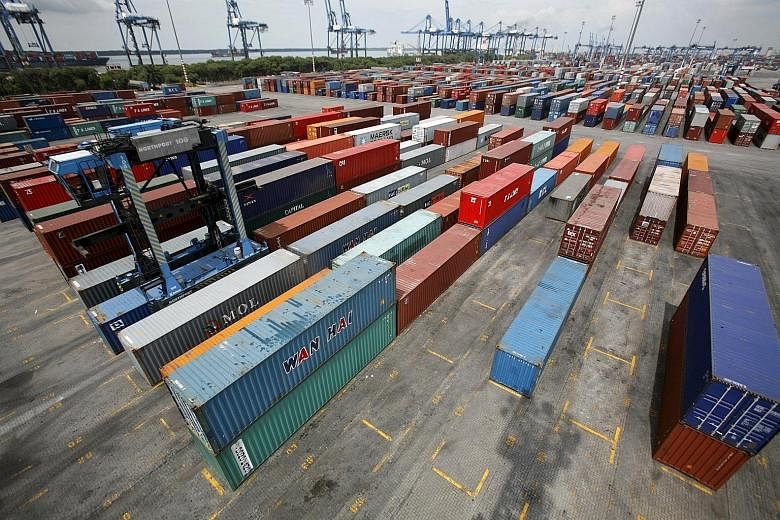KUALA LUMPUR • Malaysia's January exports unexpectedly fell for the first time in eight months on weak global demand and a fall in energy prices that look set to pressure the country's finances this year.
Exports in January declined 2.8 per cent from a year earlier, government data showed yesterday, compared with 1.4 per cent growth in December and a Reuters poll forecast of 2.5 per cent.
It was the first fall in exports since May last year. South-east Asia's third-largest economy is a net exporter of liquefied natural gas (LNG) and falling oil prices and a slowdown in China, its largest trading partner, have slowed export growth in the last two months.
"Looking ahead, the trade balance (exports) will be held hostage by the evolution of oil prices. Ongoing economic headwinds could also keep a lid on sentiment and weigh on imports of investment goods," said ANZ economist Ng Weiwen in a note. "I expect the trade balance to remain under pressure, with the current account surplus to halve in 2016 from 2015 on lower LNG prices as well as weaker commodity exports."
LNG exports in January dropped 48 per cent from a year earlier, while crude oil shipments declined 38 per cent.
Imports in January rose 3.3 per cent from a year earlier, picking up from 3.2 per cent the previous month, but lower than economists' forecast of 4.9 per cent.
January's trade surplus narrowed to RM5.39 billion (S$1.8 billion), compared with RM7.99 billion in December, pressured by falling oil and commodities prices but also from a strengthening ringgit in the first month of the year.
Malaysia reports its trade figures in ringgit, which sank more than 18 per cent against the dollar last year, Asia's worst-performing currency.
It has gained 3.8 per cent since the start of the year. The ringgit pared its gains after the data, slipping to 4.1300 per dollar from 4.1260. It was last trading at 4.1270.
"The value of exports could have partly been depressed by the ringgit appreciation, and also due to seasonality effects such as the holiday period,"said economist Julia Goh of UOB Bank Malaysia.
"We expect the ringgit to rebound this year which may temper trade surplus gains, but it could be offset by lower import costs so the net gains should still be there. How significant its impact also depends on domestic demand."
Exports to the EU grew 6.4 per cent, while US exports rose 7.9 per cent, supported by higher exports of manufactured goods.

